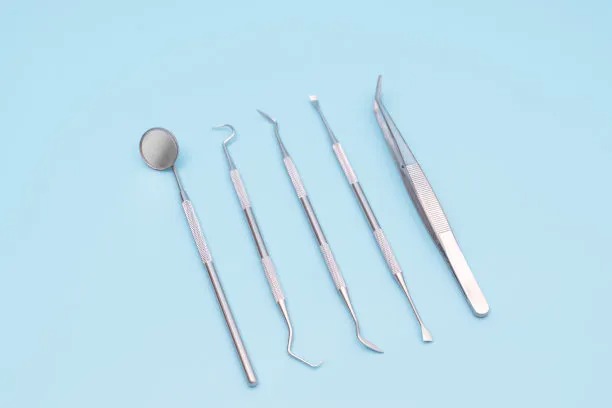Exploring the Benefits and Advances in Dental Implants for Enhanced Oral Health and Aesthetic Restoration Solutions
Summary: Dental implants have revolutionized the field of dentistry, offering patients a reliable solution for tooth loss while significantly enhancing both oral health and aesthetic appeal. This article explores the myriad benefits of dental implants, including improved functionality, increased durability, and heightened confidence. Additionally, it examines advances in implant technology, the benefits of personalized treatment options, and the positive impacts on overall health. This comprehensive discussion underscores the essential role of dental implants in modern dental practices and highlights their growing popularity as an optimal restorative solution.
1. Improved Oral Functionality with Dental Implants

Dental implants are designed to mimic the natural structure of teeth. They consist of titanium posts that are surgically placed into the jawbone, providing a sturdy base for artificial teeth. This close adherence to natural anatomy ensures that dental implants function similarly to real teeth, enabling patients to chew and speak with confidence. Unlike traditional dentures, which can slip or cause discomfort, implants remain securely fixed in place, allowing for a more natural and unrestricted experience.
Moreover, dental implants promote better oral hygiene. With the ability to brush and floss implants just like natural teeth, patients can maintain their oral health more effectively, reducing the risk of gum disease and tooth decay. This improvement in hygiene practices leads to overall better health outcomes, particularly in maintaining jawbone density, which is crucial as tooth loss can result in gradual bone deterioration over time.
Additionally, the enhanced oral functionality provided by dental implants can significantly improve quality of life. Patients often report increased self-esteem and a willingness to engage socially. This newfound confidence can lead to a more active lifestyle, benefitting both mental and physical health.
2. Durability and Longevity of Dental Implants
One of the standout advantages of dental implants is their unparalleled durability. Made from titanium, a material highly regarded for its strength and biocompatibility, dental implants can last for many years, often a lifetime with proper care. This long-term reliability is a significant financial advantage when compared to other restorative options that might require frequent replacement.
Advancements in dental technology have made implants even more resilient. Innovations such as surface treatment techniques and improved implant designs have been developed to enhance osseointegration—the process by which the implant fuses with the bone. These advances contribute to a higher success rate for implants, minimizing the need for corrective procedures.
The endurance of dental implants not only represents a robust financial investment but also provides peace of mind for patients. Knowing that their artificial teeth are secure alleviates concerns about functionality and aesthetics, allowing patients to focus on their daily activities without interruption.
3. Personalized Treatment Solutions for Patients
The field of dental implants is continually evolving, particularly in the realm of personalized treatment plans. Dentists employ a thorough evaluation process, incorporating digital imaging and 3D technology to create tailored solutions that cater specifically to an individual’s oral anatomy and health conditions. This personalization allows for optimal implant placement and enhances the overall success rate of the procedure.
Furthermore, advancements in prosthetic technology offer a range of options when it comes to the restorative teeth attached to the implants. Patients can select from various materials and designs, including porcelain and ceramic, which can be customized for shape, color, and size. This flexibility not only meets aesthetic preferences but also accommodates the functional needs of each patient.
Additionally, these individualized approaches foster a stronger patient-dentist relationship, as patients are more engaged and informed about their treatment options. This collaboration leads to enhanced satisfaction levels among patients who feel that their specific needs and desires are being prioritized.
4. Significant Impact on Overall Health
Dental implants offer far-reaching benefits that extend beyond the mouth. Research has demonstrated that maintaining oral health through implants can have a positive ripple effect on overall health. By preventing bone loss in the jaw, dental implants support facial structure and reduce the risks associated with osteoporosis.
Moreover, good oral health plays a critical role in overall health. Poor dental hygiene has been linked to various health issues, including cardiovascular disease and diabetes. By providing a reliable solution for tooth loss, dental implants contribute to better oral hygiene practices, thereby reducing the likelihood of these systemic health issues.
Lastly, restoring missing teeth through implants can alleviate issues like bite misalignment and strain on surrounding teeth, which can lead to discomfort and chronic pain. Addressing these problems proactively enhances the overall well-being of patients, demonstrating that investing in dental implants is not merely a cosmetic choice—it’s an essential health decision.
Summary: In conclusion, dental implants stand at the forefront of restorative dentistry, providing compelling benefits ranging from improved oral functionality to significant health advantages. The advances in technology and personalized treatment options further enhance their appeal, ensuring patients receive tailored care that meets their needs. As dental implants continue to gain popularity, they not only restore smiles but also contribute positively to the overall health and well-being of individuals.
This article is compiled by Vickong Dental and the content is for reference only.



